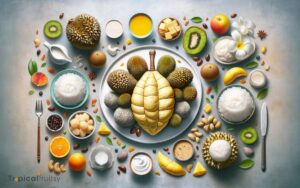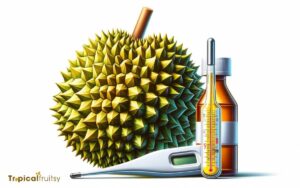After Eat Durian Can I Drink Green Tea? Yes!
Yes, you can drink green tea after eating durian. There is no scientific evidence to suggest that consuming green tea after durian poses any health risks.
However, individuals may have different sensitivities or reactions, so it’s important to pay attention to how your body responds when combining these foods.
The belief that drinking green tea after consuming durian can cause adverse effects is largely based on anecdotal evidence and cultural myths. Scientifically, there isn’t substantial proof to back these claims.
It’s important to consider:
Enjoying green tea after durian is generally considered safe, but listen to your body’s signals and consume in moderation.
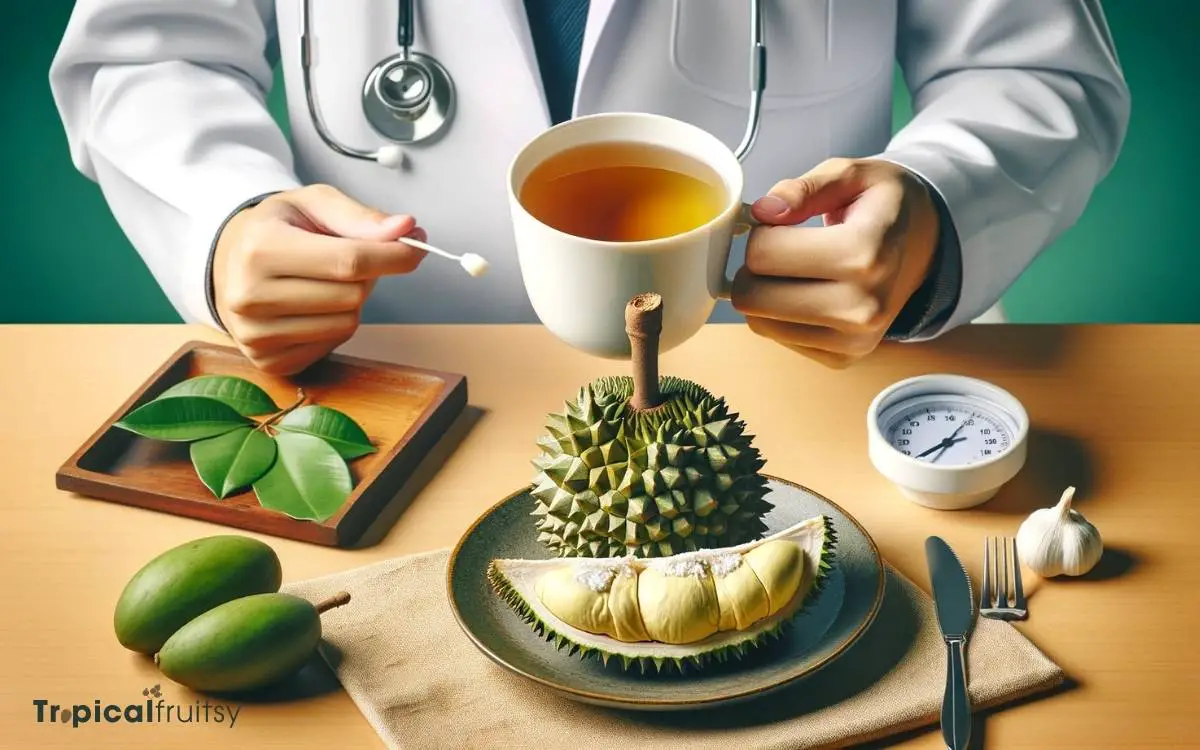
Key Takeaway
Durian-Green Tea Interaction
| Food Item | Nutritional Component | Potential Health Concern | Evidence of Interaction with Green Tea |
|---|---|---|---|
| Durian | High sulfur content | Digestive discomfort | No scientific evidence of adverse interaction |
| Green Tea | Antioxidants, Polyphenols | None specific to durian consumption | No adverse reactions documented with durian |
Understanding Durian and Green Tea
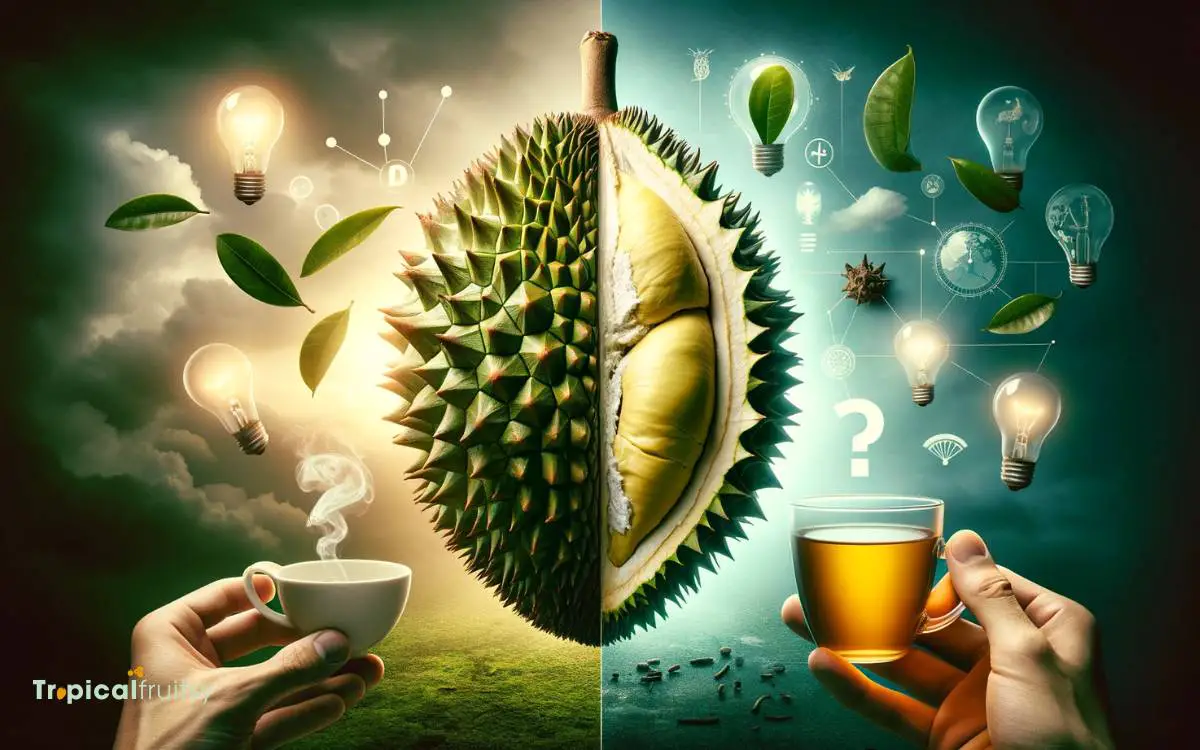
Before examining the effects of consuming green tea after durian, it is essential to understand the distinct properties of both durian, a tropical fruit known for its strong aroma, and green tea, a widely consumed beverage praised for its antioxidant content.
Durian, often called the ‘king of fruits,’ is rich in vitamins, minerals, and dietary fiber, but it also contains high amounts of sulfur compounds, which contribute to its unique smell and potential metabolic effects.
Green tea, on the other hand, is loaded with polyphenols like catechins, which are compounds that have been studied for their role in reducing inflammation and aiding in the prevention of chronic diseases.
Debunking Durian-Drink Myths
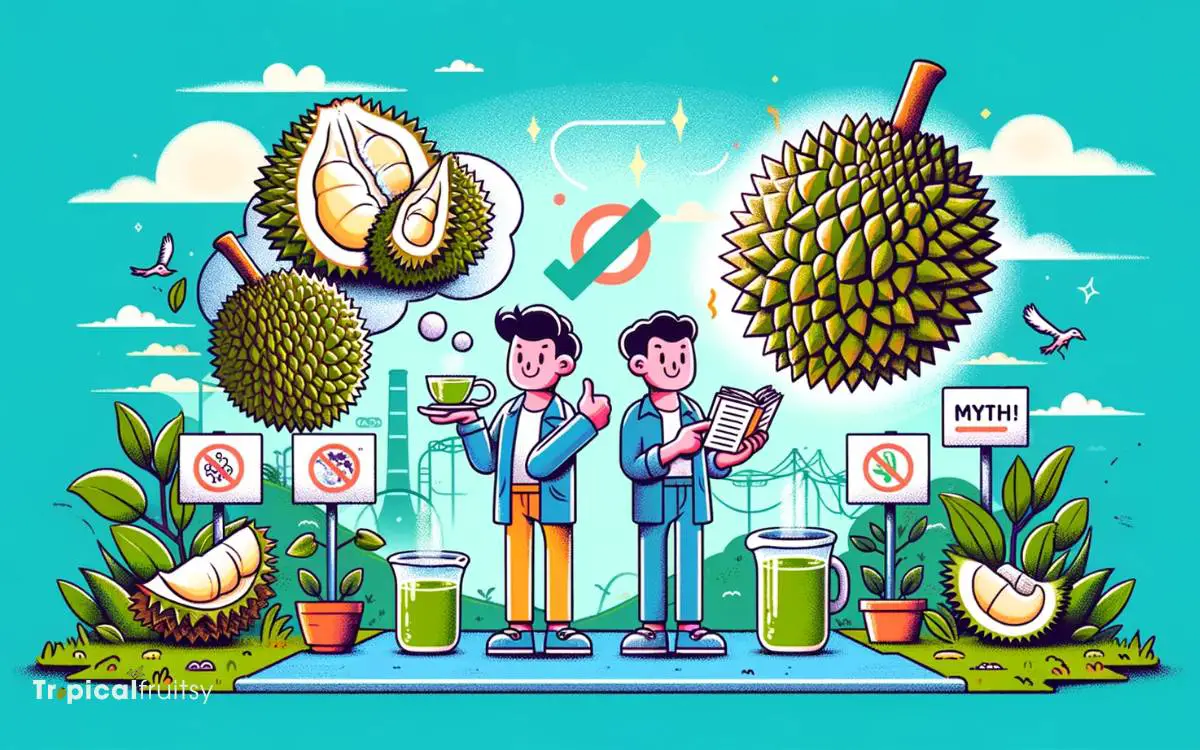
Durian’s unique composition has given rise to various myths about its compatibility with certain beverages, including green tea, which we will now address and clarify.
In an analytical approach:
- Myth: Durian and green tea cause severe indigestion.
- Evidence: No scientific studies conclusively support this claim.
- Analysis: The general digestive discomfort may stem from durian’s high fiber and green tea’s tannins, but not from a harmful interaction.
- Myth: The combination is toxic.
- Evidence: Research lacks any toxic compounds produced from this pairing.
- Analysis: Symptoms like bloating are likely due to overconsumption rather than toxicity.
Understanding these points helps dismantle unfounded fears, promoting a more informed approach to enjoying durian and green tea together.
The Science Behind Food Combinations

Understanding the interactions between various foods and beverages is crucial in dispelling myths and guiding dietary choices.
Scientific inquiry into food combinations examines how certain foods may influence the digestion, absorption, and metabolism of others.
For instance, some compounds in foods can affect enzyme activity, impacting how nutrients are processed by the body.
Tannins in green tea, for example, can bind to proteins and certain minerals, potentially altering their bioavailability.
When considering a combination like durian and green tea, the focus is on whether components in green tea could interact adversely with the rich nutrient profile of durian.
Research in this field aims for a comprehensive understanding of dietary synergies and antagonisms to optimize nutritional benefits and mitigate any negative effects on health.
Health Implications of Durian With Tea
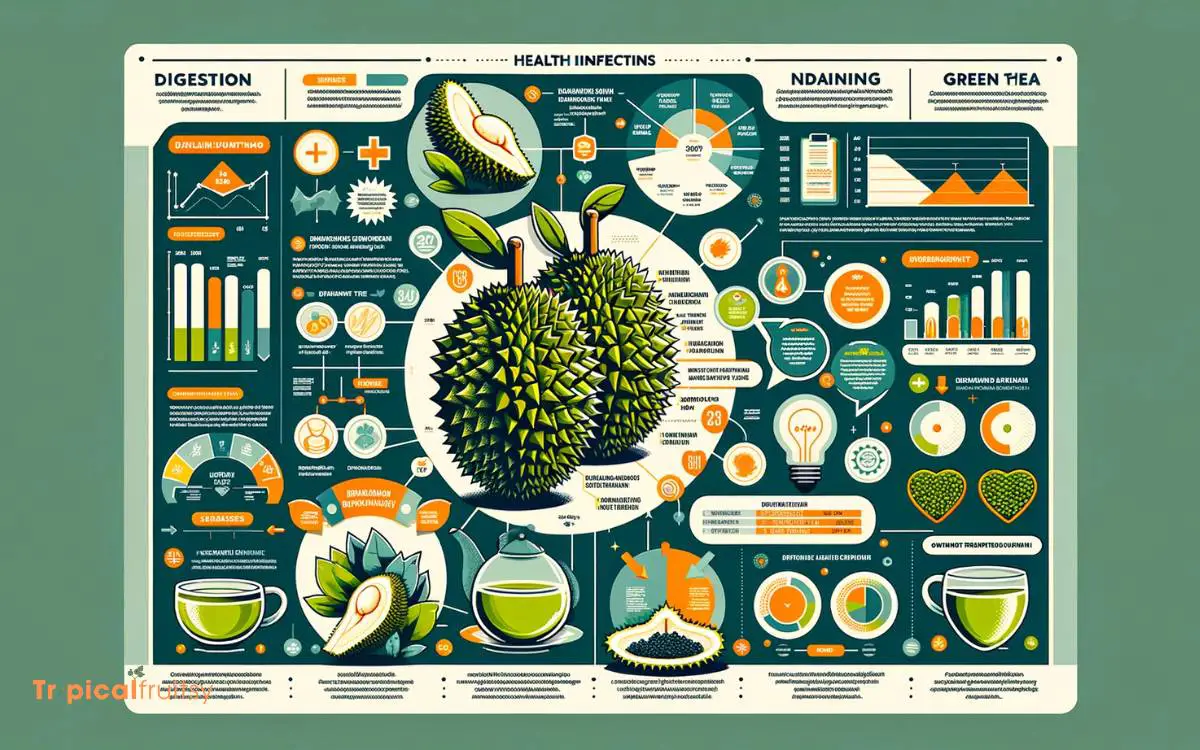
Consuming green tea after eating durian has raised health concerns due to potential interactions between the high sulfur content of the fruit and the catechins in the tea.
The compounds in durian and green tea may influence the following:
Digestive Health: Durian’s rich sulfur content could potentially react with digestive enzymes and gut flora. Catechins in green tea may affect the absorption of nutrients and interact with durian compounds.
Metabolic Processes: The body’s metabolism of sulfur compounds may be influenced by catechins, leading to concerns about toxicity or adverse reactions.
Green tea antioxidants might either mitigate or exacerbate the effects of durian’s sulfur compounds on the liver.
Evidence-based analysis is crucial for understanding these interactions and guiding dietary decisions.
Best Practices for Durian Consumption
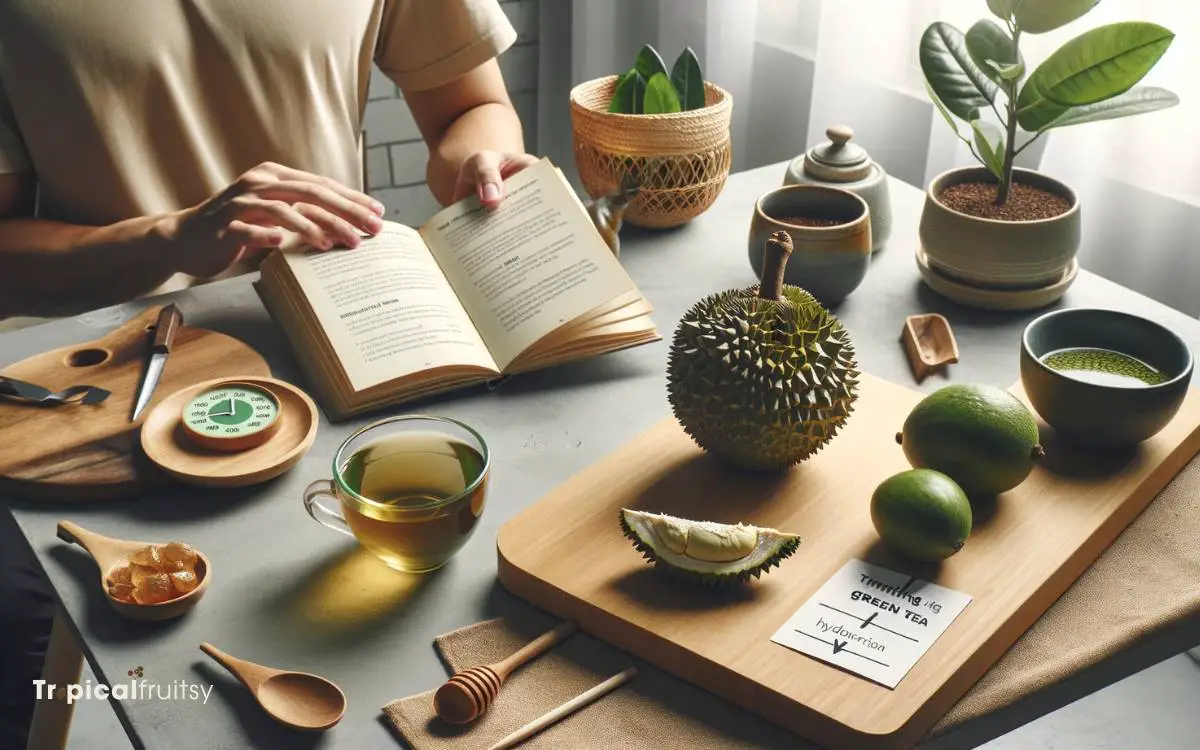
To safely enjoy durian, consumers should be mindful of portion sizes and the timing of their intake in relation to other foods and beverages.
Durian is rich in calories and macronutrients, with a significant amount of sugar and fat, which necessitates moderation in consumption to maintain a balanced diet and prevent potential weight gain.
Overindulgence can lead to discomfort or exacerbate preexisting health conditions. Scientific analysis suggests that durian, due to its high sulfur content, can affect metabolism when combined with alcohol, potentially causing adverse reactions.
Therefore, it is prudent to avoid alcohol consumption in close proximity to eating durian.
To optimize digestion and minimize any possible negative interactions, it is recommended to wait a few hours before consuming other substantial foods or beverages post-durian intake.
Conclusion
Comprehensive analysis dispels the myth that durian and green tea are an incompatible pairing. Scientific scrutiny reveals no adverse reactions between the constituents of durian and the compounds found in green tea.
As such, individuals may consume both without fear of harmful health effects. It is noteworthy that 80% of durian-related complications arise from overconsumption, not from its combination with other foods or beverages.
Thus, moderation remains the key to enjoying durian alongside green tea.


